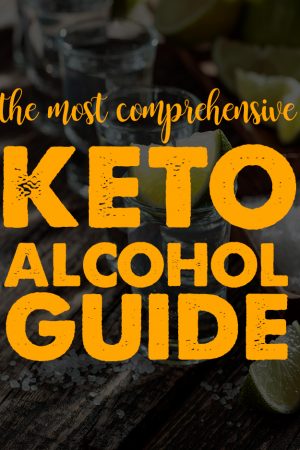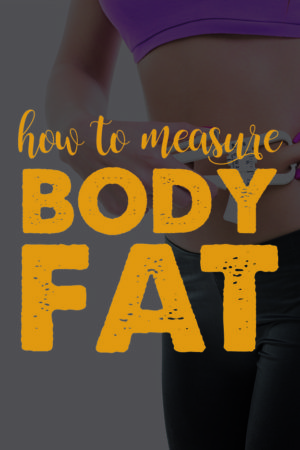The Short Answer
Erythritol is a common sweetener in ketogenic and diabetic diets. Specifically, it is a gluten-free, zero-calorie, and low-carb sugar replacement.1 It's great for adding a touch of sweetness to keto-friendly baked goods of all kinds.
What is Erythritol?
Erythritol is a type of sugar alcohol. But it's not the type of alcohol to make you tipsy! Erythritol comes from fermenting starch by using yeast. It can be obtained from certain plants and fruits as well and is a sweet alternative to table sugar.
Our bodies can’t break down erythritol during digestion. Fortunately, that is an excellent benefit for us because it can’t be converted to glucose, meaning it doesn’t increase blood sugar levels.2 Additionally, since our bodies can’t break it down, this means that it offers no calories and is considered 0 net carbs! It ranks in at a zero on the glycemic index. Finally, oral bacteria cannot metabolize it, which prevents tooth decay, unlike sugar.
Origin
Melons, grapes, mushrooms, peaches, and pears contain minor quantities of erythritol. It’s also found in man-made fermented products such as beer, cheese, sake, soy sauce, and wine. Corn is a common source for erythritol, especially in commercial production. Extraction of the corn's natural sugar takes place, and then it is fermented to create what we know as this stellar sugar substitute. Simply stated, it is naturally found in nature, then we refine it to reap its rewards.
It was first discovered more than 170 years ago and has been commercially produced since the 1990s. It has gained quite a bit of popularity over the years as more people have gone low-carb and the number of individuals trying alternative sweeteners has increased. Erythritol has consistently outperformed other sugar substitutes in virtually every single arena.
Granulated vs Powdered
Granulated erythritol looks so much like sugar that you almost cannot tell them apart with the naked eye. You can buy erythritol in either granulated or powdered form. Sometimes, it can be more difficult to dissolve in baked goods than regular sugar; in which case, powdered is the way to go. You can either purchase it ready-made in powdered form or buy it granulated, then grind it yourself with a food processor.
Neither of these forms makes any difference in how the body processes it, only the way your recipe handles it. Be sure to use the type of erythritol that a recipe calls for. Powdered sugar has much smaller granules, which changes the way it interacts during the baking or cooking process.
From a baking point of view, one distinct advantage erythritol has is that it will brown or “caramelize” like regular sugar. This can make a crucial difference in many desserts, and it’s something that most non-sugar sweeteners can do.
Taste
As expected, erythritol tastes sweet. Erythritol is about 70 percent as sweet as sugar, so you'll need about 1.3 times as much as sugar to match the sweetness. Unlike stevia, there is no strange or bitter aftertaste. In larger quantities, it causes a slight cooling sensation in your mouth.
After being low-carb and avoiding sugar for a while, your taste buds may be more sensitive, and you won't need as much erythritol to get it to the level of sweetness that you like.
Pro Tip: Using erythritol mixtures, such as stevia + erythritol or monk fruit + erythritol, is a great way to reduce the overall amount needed for baking. You can get close to a 1:1 ratio, where you’re using the precise measurement of sugar that a recipe calls for.
What Are the Cons?
If eaten in large servings (multiple tablespoons), erythritol can create slight digestive discomfort. It may cause bloating and gas. Although this happens with every sugar alcohol, erythritol is actually the mildest of them all. A European study on erythritol3 found that people eating between 20 and 35 grams of erythritol per day didn't have any digestive issues; to put this in perspective, the typical person will consume an average of 13 grams of erythritol from natural sources. You can nearly triple your erythritol intake without any issues, so you typically have to eat quite a bit to experience anything negative.
If you are experiencing bloating and gas, fret not! The symptoms will pass within a few hours. This can also serve as a bit of a balance check. While erythritol doesn’t affect you in the same way sugar does, eating even keto-approved sweets may mean you’re not getting enough of the other macros you need in your diet. Experiencing discomfort from too much erythritol might serve as a reminder to experiment with other foods in different areas.
The average American eats 150 to 170 pounds of sugar per year. Although this quickly clarifies why such a large percentage of our population is overweight or obese, it also shows the importance of eating habits. This equals nearly half a pound of sugar per day; if you eat this much of anything, it’s going to affect you. With sugar, you get prediabetes, inflammation, and uncontrolled weight gain; with erythritol, you’ll get an upset stomach. A side benefit of keto is teaching you healthier eating habits, and decreasing the number of sweets you eat—even if they’re zero-calorie, keto-friendly sweets—is a good thing. Besides, the less sweet stuff you eat, the better it will taste when you do indulge.
Check out some of our amazing keto dessert recipes.
Let Us Clear Up the Confusion
If you've heard bad things about sugar alcohols, it's likely due to maltitol. This has traditionally been one of the most commonly used sugar alcohols in sugar-free treats, especially when it comes to Atkins products. It's one of the worst sugar alcohols for digestive discomfort and is notorious for dishing out complications in the digestive process.
Although it is a sugar alcohol, it has a glycemic index score of 36. The glycemic index measures how much of an impact that a type of food will have on your blood sugar levels. When sugar alcohol is completely fermented, virtually all of the glucose has been consumed in the fermentation process. If it isn’t, however, you get something like maltitol: it’s a sugar alcohol, but still has enough sugar leftover that it can raise your blood sugar levels.
Take a look at the chart below. It showcases common sugar alcohols versus sweeteners. Fortunately, erythritol saves the best for last – coming in with a glycemic index score of 0.

Consider These Benefits
Erythritol boasts an array of perks that set it apart from the rest:
- Heat-friendly – You can cook or bake with erythritol up to 160°C (320°F) without it breaking down, which is the case with some sugar alcohols.
- Easy to use – Erythritol can be used in the same way you would sugar, and with stevia or monk fruit blends, you don’t even have to perform any calculations to find out the right amount. Just use it in the same quantities as you would sugar.
- It’s great for baking – Some artificial sweeteners are far sweeter than others, meaning you have to use way less than you would if you were using ordinary table sugar. While this may seem like a good thing, we need to remember that part of how a recipe works is relying on the actual bulk of the sugar. If you’re making a cake that calls for two cups of sugar and you add a teaspoon of monk fruit, the entire consistency of the cake will change. You just took out two cups of mass, and the way the cake tastes and feels will be completely different. With an erythritol blend, you use the exact amount the recipe calls for without having to make any adjustments.
- Zero calories – Erythritol is the only sugar alcohol that doesn’t have any calories at all. This is important for dieting, in particular, because those calories still count—even if you’re on keto.
- Easy to digest – The vast majority of this sugar substitute is absorbed in the small intestine. Bowel movements, in particular, can benefit from this sweetener because it does not promote unfortunate digestive issues (such as diarrhea) that other sugar alcohols cause.
- Non-glycemic – It helps maintain healthy blood sugar levels, insulin sensitivity, and plasma glucose quantities, making it an excellent choice for Type 1 and Type 2 diabetics.4
- Carcinogen-free – Erythritol contains no cancer-causing chemicals, which means it’s safe for both short- and long-term use.
- Fermented – Commercial manufacturing of erythritol uses corn, which is typically off the table (literally) for keto dieters. However, because it’s fermented, the original sugar is transformed to produce erythritol, removing all of the glucose and making it something that keto dieters and diabetics alike can enjoy.
Is Erythritol Right For You?
If you're trying to go low-carb or lower your sugar intake, this should be your first choice of artificial sweeteners. What if you have diabetes or a problematic metabolism? Erythritol keeps your blood sugar low, and in reasonable quantities, it can be a great sugar substitute for your diet that doesn’t cause the digestive issues other sugar alcohols can. It’s widely considered the best artificial sweetener for cooking and baking, both because it has about the same mass that sugar does as well as many of the same properties (e.g., granular form, powdered form, ability to caramelize).
References
- Felman, A. “Everything you need to know about erythritol.” Medical News Today, November 2019. https://www.medicalnewstoday.com/articles/318392#research.
- den Hartog, GJ, et al. “Erythritol is a sweet antioxidant.” Nutrition. 2010 Apr;26(4):449-58. doi: 10.1016/j.nut.2009.05.004. Epub 2009 Jul 24. https://www.ncbi.nlm.nih.gov/pubmed/19632091.
- European Commission Scientific Committee on Food. Opinion of the Scientific Committee on Food on Erythritol. SCF/CS/ADD/EDUL/215 Final. https://ec.europa.eu/food/sites/food/files/safety/docs/sci-com_scf_out175_en.pdf.
- Staff publication. “Sugar Alcohols Fact Sheet.” International Food Information Council Foundation, October 2009. https://foodinsight.org/sugar-alcohols-fact-sheet/
NUTRITIONAL DISCLAIMER
The content on this website should not be taken as medical advice and you should ALWAYS consult with your doctor before starting any diet or exercise program. We provide nutritional data for our recipes as a courtesy to our readers. We use Total Keto Diet app software to calculate the nutrition and we remove fiber and sugar alcohols, like erythritol, from the total carbohydrate count to get to the net carb count, as they do not affect your blood glucose levels. You should independently calculate nutritional information on your own and not rely on our data. The website or content herein is not intended to cure, prevent, diagnose or treat any disease. This website shall not be liable for adverse reactions or any other outcome resulting from the use of recipes or recommendations on the Website or actions you take as a result. Any action you take is strictly at your own risk.
- What Is Erythritol? The Keto Sugar Substitute - April 24, 2020
- Ketone Strips, Keto Sticks & Meters – Calculate Your Ketones - January 9, 2018
- What Are Macros? - December 29, 2017


































